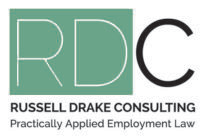We are seeing a significant increase in challenges being raised by Union Officials, and Employee Representatives, regarding the notion of ‘availability of employees’, with the lack of clarity within employment agreements posing a potential risk and liability for the Employer.
What is availability?
Availability refers to any hours the employer may require the employee to work, over and above the ordinary hours of work (as specified in the Employment Agreement) or over and above the minimum guaranteed hours.
Prior to 2016 we saw a significant increase in the use of Zero Hour agreements where employees had no guaranteed minimum hours and where actual work hours could fluctuate, or be cancelled, at short notice. This left employees in a position where they had no certainty as to what work they might have in any given week, or subject entirely to the requirements of the Employer to be at work on a daily or weekly basis.
Legislative Provisions
The Government addressed this problem in 2016 through introducing s67(D) of the Employment Relations Act 2000. In short, an availability provision is to be included in an employment agreement where;
(a) the employee’s performance of work is conditional on the employer making work available to the employee; and
(b) the employee is required to be available to accept any work that the employer makes available.
The Act reinforces that, where an availability provision is to apply, the agreement must identify the amount of reasonable compensation that the employee is to be paid for being ‘available’ to work the additional hours and the amount an employee would be paid if previously agreed hours are cancelled at short notice.
This applies equally to waged paid employees and also to those who may be remunerated on an agreed salary, challenging the notion that the salary is “compensation for all hours worked”.
The clause within existing agreements (individual and collective) that causes the most concern from an availability perspective is where, within the hours of work provisions, it implies that “the employee is required to work additional hours as may be ……..”. The implication being that the Employee has no option but to work the additional hours required by the Employer.
Relevant Case Law
The Employment Relations Authority has recently released a Determination highlighting the risks and liabilities for Employers of having non-compliant availability provisions.
Mr Lye was a stevedore whose work hours varied on a regular basis although his ordinary hours were stated to be 60 hours per fortnight. Mr Lye would often be told at short notice that there was additional work to complete, or alternative hours to be worked, or even that previously arranged hours had been cancelled at short notice.
Mr Lye’s employment agreement did not specify what reasonable compensation he would receive for the flexibility in work hours required by the Employer, or what compensation he would receive if previously agreed hours were cancelled.
The leading case with respect to Availability is Postal Workers of Aotearoa Inc and NZ Post Limited, in which the Employment Court ruled that “the employees’ time is a commodity which has value, with Employees foregoing opportunities in their private life (when required to work additional hours for the Employer [sic])
Taking this lead, the ERA with respect to Mr Lye, deemed that the work arrangements of his Employer resulted in him suffering a “significant intrusion into his personal life”. Mr Lye was awarded $22,000 for the ‘Lost Benefit Chance’ incurred as a result of a non-compliant availability provision, with a further award of $15,000 being paid to recognize the humiliation, loss of dignity and injury to feeling incurred through the Employer’s actions.
Cases such as the one above are raising this issue within grievance claims. It is therefore critical that if, due to the nature of your business operations, you either require flexibility with your employee’s hours of work or require them to work additional hours from time to time, you must have a robust availability provision compliant with s67(D) within your employment documentation.
If you are uncertain as to whether your current arrangements meet the legal employment law requirements, and will therefore protect you against such claims, please feel free to contact us directly to discuss this matter.

